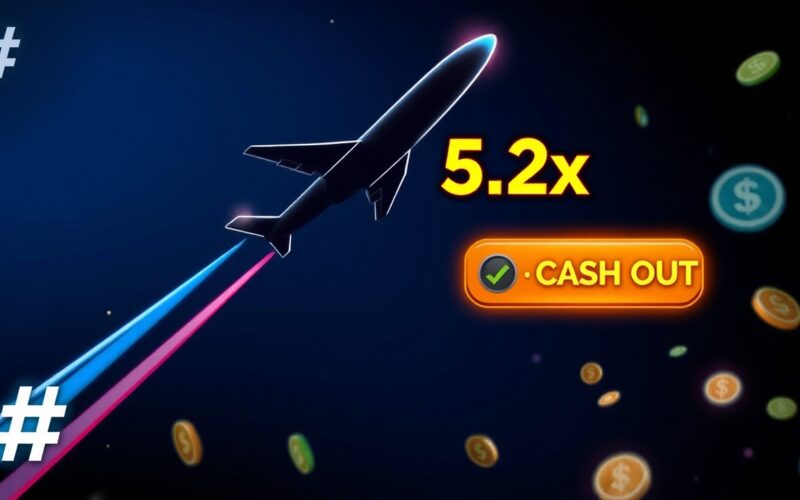The Psychology Behind Crash Gambling: Understanding the Thrill of the Game
Key Takeaways
- Crash gambling provides a thrill that is driven by the psychology of risk-taking and the appeal of dopamine release in the brain.
- Understanding the emotional rollercoaster of crash gambling can help in recognizing the impact of cognitive biases and impulse control on behavior.
- The role of social influence in crash gambling highlights the importance of peer pressure and social validation in the game.
- Dopamine plays a significant role in the thrill of the game, as it is associated with pleasure and reward, driving the addictive nature of crash gambling.
- Exploring the psychological appeal of crash gambling can shed light on the impulsive behavior and the need for understanding and managing the risks involved.
Risk-taking behavior has long been a subject of fascination for psychologists, and crash gambling provides a unique lens through which to examine this phenomenon. The allure of potentially massive rewards, coupled with the ever-present threat of sudden loss, creates a potent cocktail of excitement and anxiety that many find irresistible. This high-stakes environment taps into our innate desire for novelty and stimulation, pushing the boundaries of our comfort zones and challenging our ability to make split-second decisions under pressure.
The psychological appeal of crash gambling lies in its ability to simulate the rush of real-world risk-taking in a controlled, virtual environment. Players experience the same physiological responses – increased heart rate, sweaty palms, and heightened alertness – that they might feel during more tangible dangerous situations. This allows individuals to satisfy their craving for excitement without putting themselves in physical danger, creating a safe space to explore the limits of their risk tolerance and decision-making abilities.
Understanding the Psychological Appeal of Crash Gambling
At its core, crash gambling capitalizes on the human tendency to seek out experiences that provide a sense of agency and control. The game’s mechanics allow players to feel as though they are actively influencing the outcome, even when the results are ultimately determined by chance.
This illusion of control is a powerful motivator, as it taps into our deep-seated desire to exert influence over our environment and shape our own destinies.
Furthermore, the rapid-fire nature of crash gambling sessions creates a state of heightened engagement, where players become fully immersed in the present moment. This intense focus can lead to a sense of flow, a psychological state characterized by complete absorption in an activity and a distorted perception of time. The combination of these factors – the illusion of control and the potential for flow states – makes crash gambling a particularly compelling and addictive form of entertainment for many individuals.
The Role of Dopamine in the Thrill of the Game
Dopamine, often referred to as the “feel-good” neurotransmitter, plays a crucial role in the addictive nature of crash gambling. When players experience a win, their brains release a surge of dopamine, creating a sense of euphoria and reinforcing the behavior that led to the reward. This neurochemical response is similar to that experienced by individuals engaging in other pleasurable activities, such as eating delicious food or receiving praise from others.
The unpredictable nature of crash gambling further amplifies the dopamine response. The brain’s reward system is particularly sensitive to unexpected positive outcomes, and the element of surprise in each game round keeps players in a state of constant anticipation. This anticipation itself can be pleasurable, as the brain releases small amounts of dopamine in anticipation of a potential reward.
As a result, players may find themselves caught in a cycle of chasing the next dopamine hit, even when faced with mounting losses. For more information on crash gambling, visit Casino Life Magazine.
The Psychology of Impulse Control in Crash Gambling
| Psychological Factor | Impact on Impulse Control |
|---|---|
| Instant Gratification | Leads to impulsive decision-making and risk-taking behavior |
| Emotional Regulation | Poor emotional regulation can lead to impulsive gambling behavior as a coping mechanism |
| Attentional Bias | Focus on short-term gains rather than long-term consequences |
| Peer Influence | Pressure from peers can lead to impulsive gambling behavior |
| Stress and Anxiety | High levels of stress and anxiety can impair impulse control and lead to increased gambling |
Impulse control, or the ability to resist immediate gratification in favor of long-term goals, is a critical factor in crash gambling behavior. The fast-paced nature of the game puts significant strain on an individual’s impulse control mechanisms, requiring split-second decisions that can have significant financial consequences. This high-pressure environment can lead to a breakdown in self-regulation, causing players to make rash decisions that they may later regret.
The struggle between immediate rewards and long-term consequences is at the heart of many gambling-related issues. Players may find themselves caught in a cycle of chasing losses, convinced that the next round will be the one to turn their luck around. This behavior is often driven by the “gambler’s fallacy” – the mistaken belief that past events can influence future outcomes in games of chance.
Overcoming these impulses requires a combination of self-awareness, strategic thinking, and the ability to step back and evaluate one’s actions objectively.
Exploring the Emotional Rollercoaster of Crash Gambling

Crash gambling is characterized by rapid swings between extreme emotional states, creating a psychological rollercoaster that can be both exhilarating and exhausting. The thrill of a big win can quickly give way to the crushing disappointment of a sudden loss, leading to a volatile emotional landscape that can be difficult to navigate. This emotional turbulence can be particularly challenging for individuals who struggle with mood regulation or have pre-existing mental health concerns.
The intense emotions associated with crash gambling can also lead to a phenomenon known as “tilt,” where players become frustrated or angry and begin making irrational decisions. Tilt can be triggered by a string of losses, a near-miss on a big win, or even external factors unrelated to the game itself. Recognizing and managing these emotional responses is crucial for maintaining a healthy relationship with gambling and avoiding potentially destructive behavior.
The Impact of Cognitive Biases on Crash Gambling Behavior
The Illusion of Control
One common bias is the “illusion of control,” where players overestimate their ability to influence the outcome of the game. This can lead to risky betting strategies and a false sense of confidence in one’s gambling skills.
The Availability Heuristic and Confirmation Bias
Another relevant bias is the “availability heuristic,” where recent or memorable events are given disproportionate weight in decision-making. In the context of crash gambling, this might manifest as a player focusing on a recent big win while discounting numerous smaller losses. Confirmation bias, the tendency to seek out information that confirms pre-existing beliefs, can also impact crash gambling behavior. Players may selectively remember their wins while downplaying or forgetting about their losses, leading to an overly optimistic view of their gambling success.
Overcoming Cognitive Biases
Overcoming these cognitive biases requires conscious effort and critical thinking, as well as a willingness to challenge one’s own assumptions and beliefs about gambling outcomes.
The Role of Social Influence in the Game of Crash Gambling
Social factors play a significant role in shaping crash gambling behavior, both in online and offline environments. The presence of other players can create a sense of competition and social pressure, leading individuals to take greater risks than they might when gambling alone. This phenomenon, known as “social facilitation,” can amplify both the positive and negative aspects of the gambling experience.
Online crash gambling platforms often incorporate social features such as chat rooms and leaderboards, which can further influence player behavior.
The desire for social status and recognition can drive individuals to pursue riskier strategies in an attempt to climb the ranks or impress their peers. Additionally, the anonymity provided by online platforms can lead to a sense of detachment from real-world consequences, potentially encouraging more reckless behavior.
Understanding and navigating these social dynamics is crucial for maintaining a balanced approach to crash gambling and avoiding the pitfalls of peer pressure and social comparison.
FAQs
What is crash gambling?
Crash gambling is a form of online gambling where players place bets on a multiplier that increases rapidly and then crashes at a random time. Players must cash out before the crash to win their bet.
What is the psychology behind crash gambling?
The psychology behind crash gambling involves the thrill of risk-taking, the appeal of dopamine release, the impact of cognitive biases, the role of social influence, and the struggle with impulse control.
How does dopamine play a role in the thrill of crash gambling?
Dopamine, a neurotransmitter associated with pleasure and reward, is released in the brain during the anticipation and experience of winning in crash gambling, contributing to the thrill and excitement of the game.
What is the role of impulse control in crash gambling?
Impulse control is a psychological factor in crash gambling, as players may struggle to resist the urge to continue betting, even when they should cash out to secure their winnings.
How does social influence impact crash gambling behavior?
Social influence, such as peer pressure and the behavior of other players, can impact an individual’s decision-making and betting behavior in crash gambling, leading to increased risk-taking.
What are cognitive biases and how do they impact crash gambling behavior?
Cognitive biases are systematic patterns of deviation from rationality in decision-making. In crash gambling, cognitive biases can lead to irrational betting behavior and poor risk assessment.
What emotional rollercoaster is associated with crash gambling?
Crash gambling can evoke a range of emotions, including excitement, anticipation, anxiety, and disappointment, as players experience the rapid rise and crash of the multiplier and the outcome of their bets.
Why do people find crash gambling appealing?
The appeal of crash gambling lies in the thrill of risk-taking, the potential for high rewards, the release of dopamine, and the social aspect of competing with other players.


